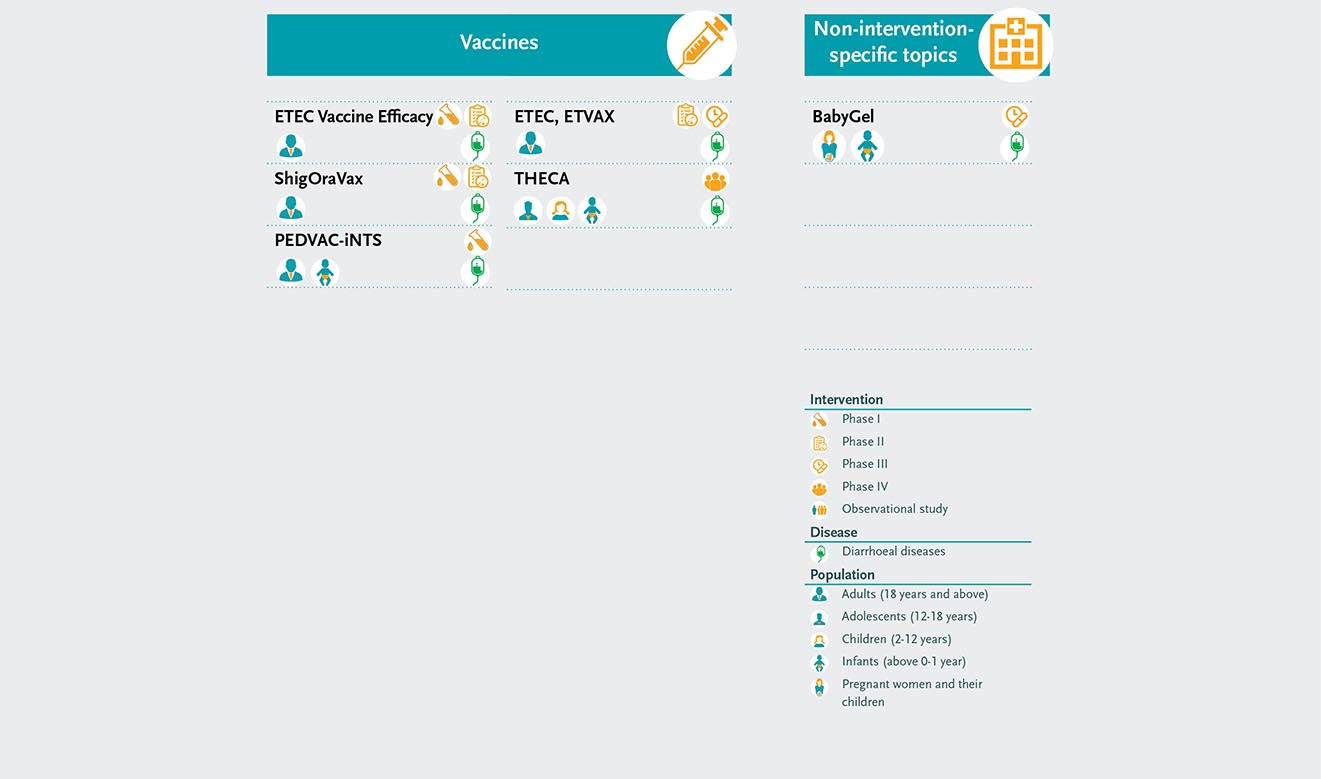Epidemiological studies have provided a clearer picture of the microbiological causes of diarrhoeal disease in sub-Saharan Africa, revealing a drop in mortality without a corresponding fall in morbidity, which reflects a shift from severe life-threatening diarrhoeal episodes towards recurrent disease. Persistent infections contribute to abnormalities in gut function (enteropathy), affecting nutrient uptake and response to oral vaccines, and creating a vicious circle of diarrhoea and malnutrition leading to stunting and delayed development.
Vaccines are likely to offer cost-effective ways to manage diarrhoeal diseases. Rotavirus vaccines are beginning to have a major impact globally, but their effectiveness is significantly affected by enteropathy. Vaccines against other viral and bacterial pathogens are beginning to be tested in clinical trials.
EDCTP has prioritised the following diarrhoeal disease-causing pathogens: rotavirus, Shigella, enterotoxigenic E. coli, Cryptosporidium and norovirus.
EDCTP portfolio: diarrhoeal diseases
Collaborative clinical trials and clinical research (2014-2021)


